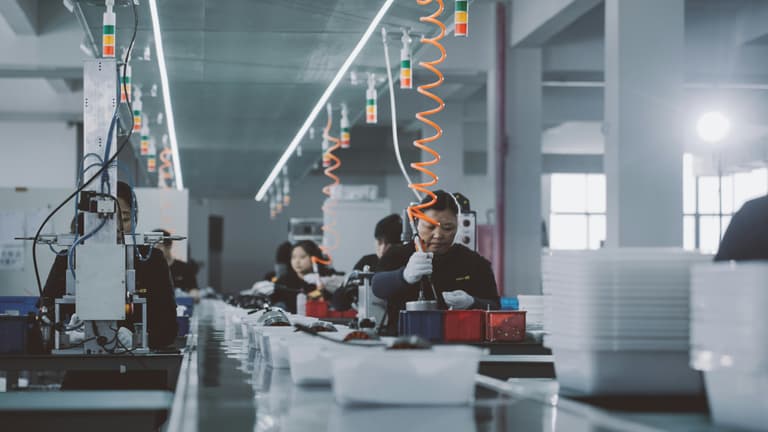Human Trafficking Massage Parlor Red Flags To Look Out For


Human trafficking is a phenomenon that is nothing short of modern-day slavery, and one of the hardest-hit industries in the US is the massage business. Illicit human trafficking massage parlors are so ubiquitous in this country that most Americans have at least one located within a short driving distance. In this article, we'll cover the definition of human trafficking, how it manifests specifically in massage businesses, and how to spot the most common tell-tale signs of illicit massage parlors all around us.
What Is Human Trafficking?
Let's quickly define human trafficking from the perspective of the US Department of Justice/ law enforcement.
According to the Trafficking Victims Protection Act (TVPA), human trafficking is:
A) Sex trafficking in which a commercial sex act is induced by force, fraud, or coercion, or in which the person induced to perform such act has not attained 18 years of age; or
B) The recruitment, harboring, transportation, provision, or obtaining of a person for labor or services through the use of force, fraud, or coercion for the purpose of subjection to involuntary servitude, peonage, debt bondage, or slavery.
Types Of Human Trafficking
Most cases of types of human trafficking fall into the two broad categories of "forced labor" and "sex trafficking," whereby human beings are forced by traffickers into slavery or "bonded servitude" (working of a never-ending "debt") — or exploited for sexual acts/sexual services against their will though severe coercion, intimidation, threats to their families, or seizing their travel documents and holding them physically captive.
Forced labor and sexual exploitation can sometimes overlap in the commercial sex industry and the massage parlor industry. In those sectors, it is common to see human beings forced into labor against their will or for too little pay and exploited or abused sexually.
The Illegal Sex Trade - Massage Parlors Connection
It is estimated that the erotic massage parlor economy in the US brings in at least 2.5 billion in annual profits. In addition to offering regular, legally sanctioned massages, illicit massage parlors also provide a range of illegal sex acts to the customers for extra charge. The term "happy ending" is often used for the type of service they provide to the clients and typically refers to manual erotic stimulation or oral sex performed at the end of the massage.
Many women employed in such establishments are victims of human trafficking: they have been coerced with false promises, threatened with violence, or physically trapped into this situation without understanding what they were getting into.
Recent high-profile instances of massage parlor busts include the 2017 case when the Miami Beach Police raided four Miami Beach spas, finding signs that trafficked women were living on the premises, as well as the infamous 2019 sting operation that implicated the New England Patriots owner Robert Kraft in human trafficking at the Orchids of Asia Day Spa in Florida.
What Attracts Human Traffickers To The Massage Businesses?
Unlike medical facilities that involve physical touch-work as part of diagnosis or treatment, massage parlors are not subject to strict government regulation. Therefore, even though massage therapy is a legitimate practice and there are plenty of professionally trained massage therapists, this profession's uniquely private and intimate nature lends itself to all sorts of boundary-crossing from "therapy" into "pleasure." After all, they are called massage "parlors" and "spas," as opposed to massage "clinics."
This discreetness and ambiguity of massage parlors present an extra challenge to law enforcement in busting human traffickers. The women working in such places are heavily coached (usually involving threats or violence) against speaking with the police and frequently will not cooperate with their legal representation.
Due to these "favorable" conditions, as well as a lack of strict (or any) zoning rules in some areas, a massage parlor can be used by criminals as fronts not only for sex work but other black market activities such as money laundering.
Who Are The Victims In Illicit Massage Parlors?
The victims trafficked within the illicit massage parlor business are typically women between the ages of 35 and 55, flown in from abroad or recent immigrants to the country (typically from South Korea and China), who speak little English, have children, and are desperate to support their families or pay off existing debts.
Recruited through acquaintances or ads promising a high income, by the time these women realize that they are being sexually exploited or underpaid for their work, it's too late to back out, as they are already trapped by the "debt" for travel expenses, room, and board.
Not all illicit masseuses are "owned" by human traffickers. Some enter this arrangement of their own free will, in the capacity of sex workers. Those who enter sex work consensually are not considered victims of trafficking (although, when coercion is involved, the notion of "choice" becomes suspect). It should be noted, however, that any minor under 18 found working in any sexual capacity for any establishment or handler is automatically considered a child sex trafficking victim in the eyes of the law.
How To Spot An Illicit Massage Parlor
Illicit massage parlors operate in plain sight, but many have a particular "look" on the outside and a certain "feel" on the inside that signals they offer more than just massages.
On the outside, such establishments typically have all windows covered or blacked out, usually with a neon sign lit up at the entrance or in the windows. The doors are locked, and one must be buzzed in to enter the business.
Once inside, other indicators of an illicit massage parlor may include: the spa outright refuses to admit/service female customers the listed rates for massages are lower than the industry standard the masseuses speak little to no English the masseuses are not allowed to handle money the masseuses are wearing very little clothing the masseuses all live in the same location (transported to and from work together), or there are signs that they are living right in the parlor there is a very high turnover of masseuses, with new ones showing up on a weekly/monthly basis
Those with strong suspicions of human rights violations in a massage parlor can call the National Human Trafficking Hotline at (888) 373-7888.
##Protect Your Business From Complicity In Human Trafficking
Massage parlors are just one private sector of many others to proliferate human trafficking: don't assume that this hideous crime could never affect your industry or company!
If you are a business owner, you can be taken to court for profiting from instances of human trafficking — even if you are not directly causing it but are still involved in financial transactions with suppliers that have their hands dirty in the trade. In the effort to end human trafficking, preventing it is infinitely less costly — in human suffering and financial losses — than dealing with its consequences. Learn more about human trafficking consequences to the economy here.
##Let EasyLlama Help You With That
As a leader in the e-learning space, EasyLlama recognizes the value of human trafficking awareness, and our anti-human trafficking training is perfect for your workforce and its leadership. Quickly and easily, your employees and their supervisors will learn how to spot the "red flags" of potential human trafficking victims in their midst, how to report their observations to the proper authorities effectively, and how to avoid associating with businesses that are in some way involved in or contributing to the problem of human trafficking. Access your free course preview today to learn more!
Written by: Maria Malyk





